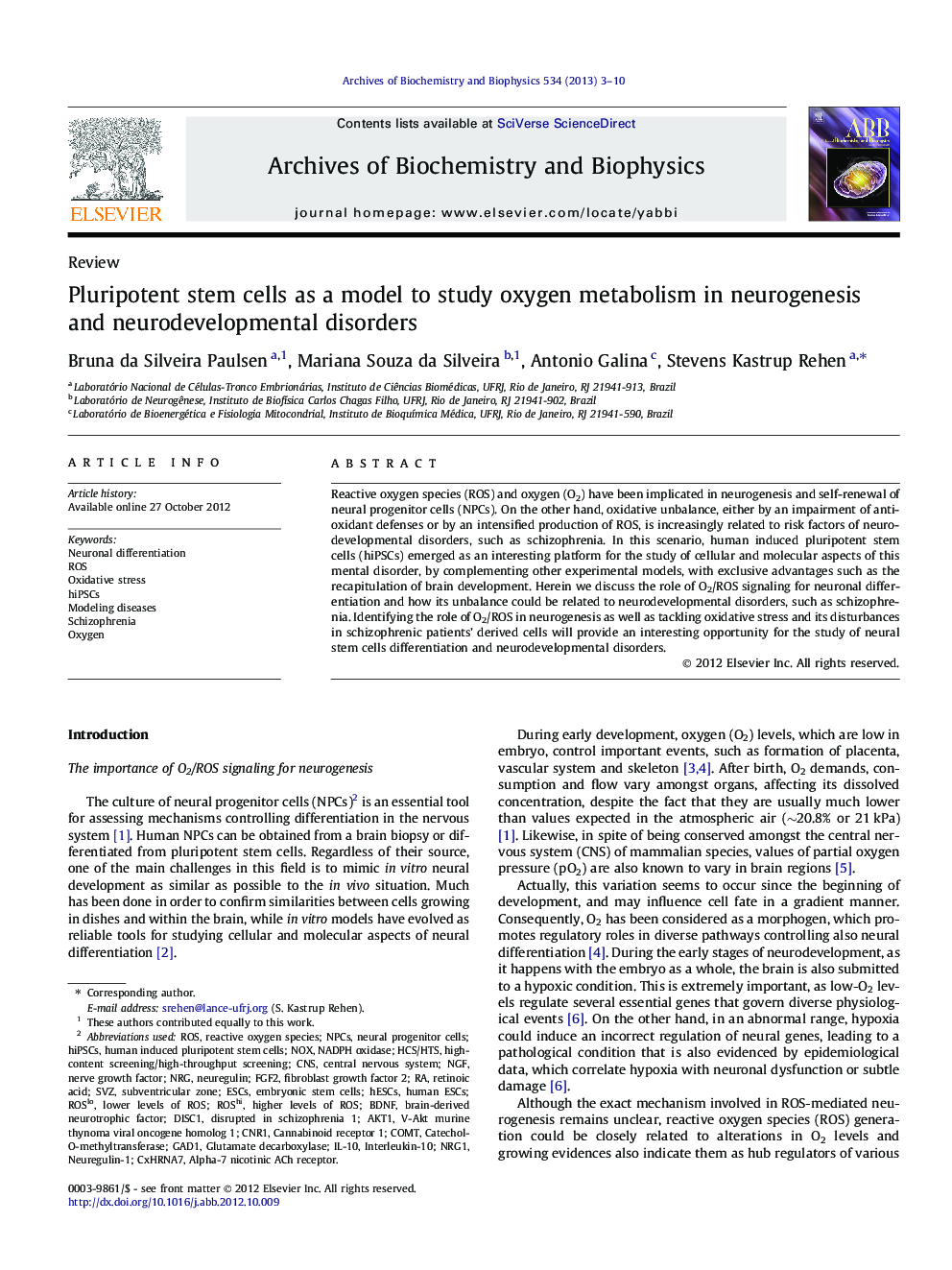| Article ID | Journal | Published Year | Pages | File Type |
|---|---|---|---|---|
| 1925382 | Archives of Biochemistry and Biophysics | 2013 | 8 Pages |
Reactive oxygen species (ROS) and oxygen (O2) have been implicated in neurogenesis and self-renewal of neural progenitor cells (NPCs). On the other hand, oxidative unbalance, either by an impairment of antioxidant defenses or by an intensified production of ROS, is increasingly related to risk factors of neurodevelopmental disorders, such as schizophrenia. In this scenario, human induced pluripotent stem cells (hiPSCs) emerged as an interesting platform for the study of cellular and molecular aspects of this mental disorder, by complementing other experimental models, with exclusive advantages such as the recapitulation of brain development. Herein we discuss the role of O2/ROS signaling for neuronal differentiation and how its unbalance could be related to neurodevelopmental disorders, such as schizophrenia. Identifying the role of O2/ROS in neurogenesis as well as tackling oxidative stress and its disturbances in schizophrenic patients’ derived cells will provide an interesting opportunity for the study of neural stem cells differentiation and neurodevelopmental disorders.
► O2/ROS play a crucial role in neurogenesis and self-renewal of stem cells. ► Impaired O2/ROS is detrimental to neurogenesis and contribute to schizophrenia’s onset. ► iPSCs are useful for studying O2/ROS in neurogenesis, with benefits upon other models.
